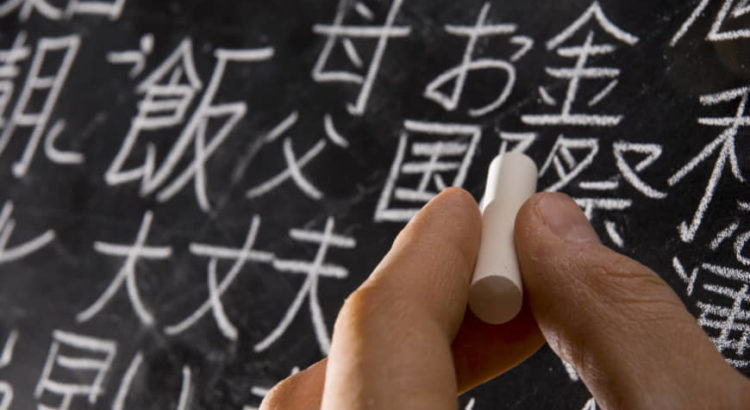Asia/ Japan/ Source: mainichi.jp.
A female instructor holds up cards each bearing a Japanese phonetic katakana character, and the nine children with foreign nationalities in the class read them out in unison, «A, i, u …» The instructor changes the order of the cards, and the students follow right along: «I, o, u …»
This basic Japanese lesson is part of the four-level language course offered by the Tabunka Free School, run by nonprofit organization Multicultural Center Tokyo in the capital’s Arakawa Ward. Most of the 30 or so students at the school are aged 15 or above and have finished compulsory education in their home countries. Many of them are aspiring to enter Japanese high schools, for which they also study math and English at the school.
«I would like to pass the entrance exam for a high school,» said Nguyen Quang Duc, a 16-year-old Vietnamese student in an advanced Japanese language class at Tabunka.
Seven Tokyo metropolitan high schools offer alternatives to regular entrance exams for foreign students who came to Japan within the past three years, screening applications through interviews and compositions. However, only one in two applicants gets through the highly competitive selection process. As for regular exams, foreign students are allowed certain exception to the usual rules, such as bringing a dictionary, but the need to take science and social studies segments makes it hard for them to get in.
According to government statistics, in 2016 there were roughly 150,000 foreign children aged 6 to 17 living in Japan. Of them, more than 80,000 attended public schools here. It remained unclear, though, where most of the remaining students were studying, even if those enrolled at private schools were factored in. There are known cases of foreign students being shunned by elementary and junior high schools due to their poor Japanese language ability. The Multicultural Center Tokyo received 243 consultations about places of learning for foreign children in fiscal 2017, almost double the figure of five years ago.
Multicultural Center Tokyo representative Noriko Hazeki, 66, told the Mainichi Shimbun, «Japanese (as a second) language education at schools in this country is insufficient. The government should look into the realities of the situation and improve things swiftly.»
Ruhina Maherpour, a 21-year-old Iranian citizen studying at Nihon University, was born and raised in Japan due to her father’s job. However, her Japanese was not sufficient to move on in her education here despite understanding the language. And so she went through the language courses at Tabunka Free School, finishing them in academic 2012.
Maherpour then started evening classes at a Tokyo metropolitan high school while studying at a school at the Iranian Embassy in Japan. She quit the metro school after a year after she found going to both too burdensome, but this made her preparations for university entrance exams even harder.
Although she sought to take admission exams for Japanese universities with special quotas for foreign students, an education ministry official told her that the quota was only for students based overseas. Among the 30 or so schools she contacted, only five allowed her to sit for their exam. One of them was for Nihon University, where Maherpour now studies sociology while engaging in activities to introduce Iranian culture here in Japan.
«I get the sense that Japanese people welcome foreign tourists but not residents. I want to do whatever I can to make it easier for people from abroad to live here,» she said.
There are now growing calls for creating places and opportunities for foreign residents here to improve their Japanese skills to a sufficient level. Education minister Masahiko Shibayama told a press conference on Nov. 13, «We will support efforts across the country and introduce new skills certifications for Japanese language teachers.»
According to a 2017 Agency for Cultural Affairs study, about 60 percent of the roughly 40,000 Japanese language teachers in the country are volunteers. While at least 415 local governments and education boards provide Japanese language education to non-native speakers, even lessons given by public institutions depend heavily on volunteer instructors.
Tokyo’s Shinjuku Ward, where foreign residents account for about 12 percent of the 346,000 inhabitants, provides Japanese language classes for foreigners at 10 locations. The classes are taught by roughly 70 volunteers registered with the ward after going through 70 hours of training. As the fees for the Japanese lessons are just 2,000 yen for a weekly, four-month course, some of the classes have long waiting lists.
«There are limits to what municipal governments can do. In order to improve Japanese language education, support from the central and prefectural governments is imperative,» said a ward official in charge.
A government-sponsored bill to revise immigration law to accept more foreign workers into Japan is being debated in the current extraordinary Diet session. If it passes, the government envisages allowing up to 340,000 foreigners to work in the country over a five-year period beginning next spring. However, questions are being raised over whether the government has plans to integrate these newcomers as full-fledged members of local communities, instead of just treating them as a boost to the country’s workforce.
To answer that question, the government needs to consider not only Japanese language education but also social security programs for foreign workers. For example, a foreign worker who paid pension premiums for more than three years cannot get the money refunded. Policy holders are also required to stay on the program for at least 10 years to be eligible for future pension benefits.
If their home countries have a social security agreement with Japan, foreign workers do not have to make duplicate payments here and back home. However, there were only accords with 18 countries as of August this year, including just three Asian countries: South Korea, India, and the Philippines.
There are also concerns that medical costs could increase if more foreigners start working in Japan. Public health insurance policies held by company employees cover the medical bills of dependents within three degrees of kinship — even, under certain conditions, if they live abroad. However, the health ministry is planning to submit a bill to revise the Health Insurance Act to next year’s regular Diet session to limit coverage to those living in Japan.
Source of the notice: https://mainichi.jp/english/articles/20181124/p2a/00m/0na/012000c

FT企画・インターナショナルスクール20190617201451744_Datare-750x410.jpg)








 Users Today : 222
Users Today : 222 Total Users : 35459817
Total Users : 35459817 Views Today : 386
Views Today : 386 Total views : 3418358
Total views : 3418358